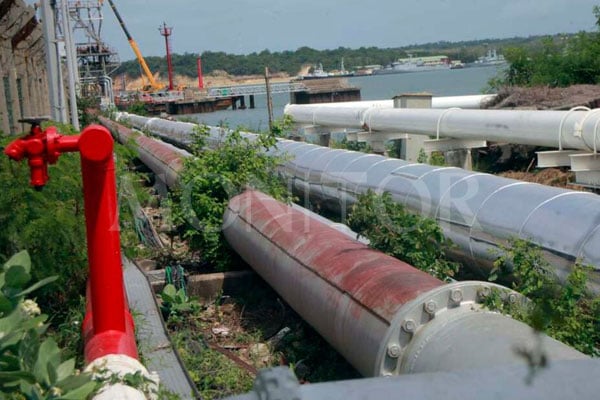Prime
Govt commits Shs 872b to oil financing

UNOC is expected to make a 15 percent contribution of the whole $3.5b capital expenditure on the pipeline project. PHOTO | FILE
What you need to know:
- Out of the Shs872b at least Shs720b will go into oil financing, while the Petroleum Authority of Uganda, the oil regulator and Ministry of Energy will receive Shs64b and Shs87.3b, respectively.
Government has allocated Shs872b in the 2022/23 Budget to oil related activities, which signals commitment towards going through the development phase to achieve first oil.
Finance Minister Matia Kasaija confirmed the allocation during the Budget Speech in which he said government had fulfilled its earlier commitment that had been made early this year.
The Shs872b will be shared with a number of oil-related government agencies, with Shs720b going into oil financing, while the Petroleum Authority of Uganda, the oil regulator and Ministry of Energy taking Shs64b and Shs87.3b.
Construction of the East African Crude Oil Pipeline (EACOP), Mr Kasaija said, is expected to commence in the coming financial year while: “The capacity of the Uganda National Oil Capacity to invest in oil and gas development has also been enhanced”.
“While there have been negative campaigns against the development of the Crude Oil Pipeline, government will develop the country’s oil and gas resources in a responsible and sustainable manner for the benefit of all Ugandans,” he said.
Mr Kasaija also indicated that investments in the oil and gas sector had contributed significantly to the increase in private sector imports to $6.4b for the period ended April from $5b in the previous 12 months.
Uganda National Oil Company, which handles the state’s commercial interests in the petroleum sub-sector, holds a 15 percent participating interest as government’s nominee in the Petroleum Production Licences.
UNOC’s shareholding and capital structure include the Energy Ministry with 51 percent shares and the Finance Ministry with 49 percent shares.
At the 5th UNOC Annual General Meeting held at the end of April, Mr Kasaija had pledged to provide UNOC with the remaining equity for the oil pipeline and the refinery when it is due, reiterating that government is committed to ensuring UNOC is sufficiently funded as the country seeks first oil by 2025.
UNOC is also expected to undertake stocking of the 30 million litre Jinja Storage Terminal to enhance security of petroleum supply in Uganda.
Ms Proscovia Nabbanja, the UNOC chief executive, reaffirmed the need to capitalise the company by the shareholders.
Mr Peter Muliisa, the UNOC legal and corporate affairs manager, said the pipeline remains the key project that requires financing.
“We have been able to pay our cash calls from February after the final investment decision announcement, we should be able to exhaust that money we got last financial year probably in November, and the money provided for in this Financial Year should be able to kick in at the end of this year to help us meet cash calls for next year,” he said, noting that capital expenditure budget focuses on construction activities such as procuring and contracting a company for the installation of pipes, technical and environmental studies around the pipeline, and the compensation of people for pipeline land.
UNOC is expected to make a 15 percent contribution of the whole $3.5b capital expenditure on the pipeline project.
Fuel reserves
UNOC is working on a final proposal to receive financing for restocking of petroleum reserves in the Jinja Storage Terminal.
The 30 million-litre fuel storage facility is meant to hold national fuel reserves.




